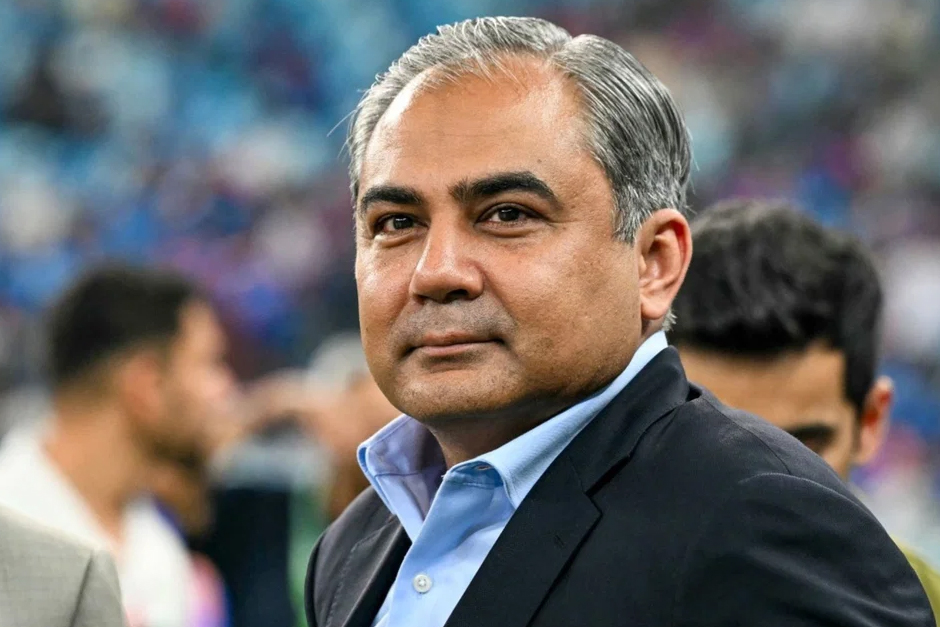The intricate world of international cricket administration often mirrors the geopolitics that surround it, especially when it involves cricketing giants like India and Pakistan. Recent reports have brought to light a significant development concerning the relationship between the Board of Control for Cricket in India (BCCI) and the Pakistan Cricket Board (PCB), with PCB Chairman Mohsin Naqvi reportedly facing a robust stance from the BCCI during recent discussions in Dubai. This escalation has, according to various media outlets and informed sources, reached a point where the International Cricket Council (ICC) may soon step in, potentially by forming a dedicated panel to mediate the contentious issues.
The reported confrontation underscores the persistent administrative friction between the two boards, which has frequently spilled over into various forums, including ICC and Asian Cricket Council (ACC) meetings. While details of the specific issues that led to the alleged “cornering” of Naqvi remain somewhat opaque, it is widely understood that matters such as hosting rights for upcoming ICC tournaments, revenue distribution models, and reciprocal arrangements for playing matches have been perennial points of contention. The BCCI, known for its significant financial muscle and influence within global cricket, appears to have adopted an uncompromising position, putting pressure on the PCB chairman in a manner that has drawn international attention.
The Dubai Impasse: BCCI’s Firm Stance on PCB Chairman Mohsin Naqvi
The recent high-level meetings in Dubai, likely involving various cricket boards and ICC officials, became the backdrop for what sources describe as a determined stand by the BCCI against the PCB. While the exact nature of the discussions leading to the reported impasse is not fully disclosed, it is believed that key agenda items included Pakistan’s hosting of the Champions Trophy in 2025 and India’s participation in the event, alongside ongoing dialogues regarding the scheduling and venue for future bilateral or multi-nation tournaments. The BCCI’s firm stance reportedly left Mohsin Naqvi in a difficult position, unable to secure concessions or an amicable middle ground on certain critical points.
India and Pakistan have not played a bilateral series since 2012-13, with their encounters restricted to ICC and ACC events. This political backdrop often complicates administrative decisions. The BCCI’s strategy, according to reports, reflects a broader sentiment within Indian cricket, advocating for decisions that are perceived to be in the best interest of the sport’s global stability and, implicitly, India’s cricketing priorities. The pressure exerted on Naqvi, a relatively new chairman for the PCB, highlights the uphill task he faces in navigating these complex relationships, especially when dealing with the financially dominant BCCI.
ICC’s Potential Intervention: A Panel for Resolution?
The gravity of the situation, if reports are accurate, is such that it warrants the attention of cricket’s global governing body. The prospect of the ICC forming a panel to intervene signals a recognition that the dispute between the BCCI and PCB could have wider implications for international cricket. Such a panel, if constituted, would likely comprise neutral members, possibly including former players, legal experts, and seasoned administrators, tasked with understanding the grievances of both boards and recommending a viable path forward.
An ICC intervention would not be unprecedented in spirit, as the body often steps in to resolve disputes or mediate between member nations on various issues, though a specific panel for such a high-profile, politically charged dispute would underscore the severity of the current situation. The objective would be to facilitate dialogue, ensure fair play in administrative matters, and prevent the dispute from disrupting major tournaments or the broader calendar. The ICC’s role would be to safeguard the integrity and smooth functioning of international cricket, ensuring that administrative disagreements do not overshadow the sport itself.
Wider Implications and the Path Forward for Subcontinental Cricket
The administrative tug-of-war between the BCCI and PCB has far-reaching implications, extending beyond the two boards themselves to affect the entire landscape of subcontinental and global cricket. Prolonged disagreements can lead to uncertainty around major events, impact sponsorship revenues, and ultimately diminish fan enthusiasm. The resolution of such conflicts is crucial for the health and growth of the sport, particularly in a region where cricket holds immense cultural significance.
A veteran cricket administrator, speaking on condition of anonymity, reportedly stated, “The constant administrative friction between India and Pakistan is detrimental to the sport. The ICC’s intervention, if it comes, must aim for a lasting solution, not just a temporary fix. Our fans deserve to see cricket thrive, free from these continuous disputes.” This sentiment encapsulates the frustration felt by many stakeholders and fans who yearn for cricketing decisions to be made purely on sporting merit and administrative fairness.
As the cricketing world watches, the potential formation of an ICC panel represents a critical juncture. The outcome of any such intervention will not only dictate the immediate future of India-Pakistan cricketing relations but also set a precedent for how global cricket governance navigates similar high-stakes disagreements. For TrendLyric.com readers, this ongoing development is a stark reminder of the complexities embedded within the sport’s highest echelons, where diplomacy and negotiation are as crucial as the game played on the field.
The coming weeks will likely shed more light on whether the ICC officially steps in and what form its intervention might take, offering a glimmer of hope for a more stable and harmonious future for cricket between these two passionate cricketing nations.




